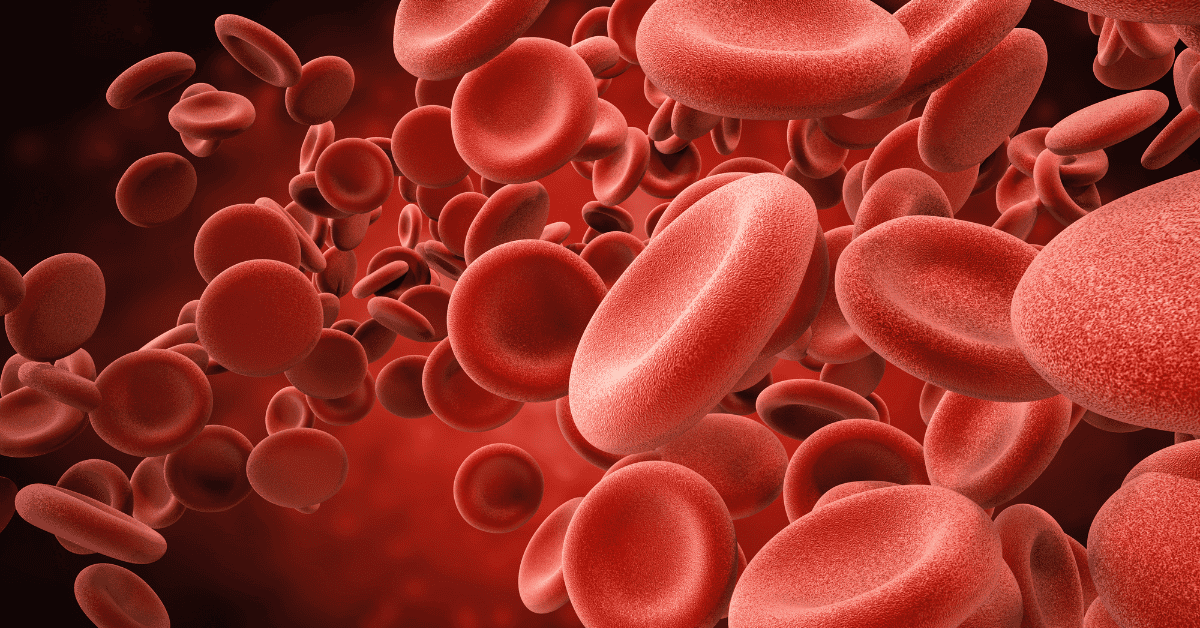
Pre-workout supplements aren't a new concept.
They've been around for a while, promising to boost your energy and enhance your workout performance.
But what started as simple caffeine pills has evolved into a complex blend of various ingredients, each with its benefits and potential side effects.
Let's dive into pre-workouts if they work and what ingredients work.
Yes, pre-workout supplements are generally designed to enhance energy, focus, and endurance during exercise.
The effectiveness can vary based on the ingredients, individual response, and the type of exercise, but research shows that they can boost performance for many users.

Pre-workout supplements are specially formulated products designed to enhance physical performance, increase energy levels, and improve focus during workouts.
They typically contain a blend of ingredients, including stimulants like caffeine, amino acids such as beta-alanine and citrulline, and other performance-enhancing compounds like creatine and nitrates.
The science behind pre-workouts lies in the synergistic effects of these ingredients.
Caffeine and other stimulants boost energy and alertness, amino acids support muscle function and reduce fatigue, and compounds like creatine enhance strength and power.
Together, these ingredients optimize the body's performance during exercise, whether it's a high-intensity interval training session or a weightlifting routine.
While pre-workouts have become popular among athletes and fitness enthusiasts, it's essential to understand the individual ingredients and their potential effects on the body.
Consulting with healthcare professionals and choosing reputable brands can help ensure a safe and effective pre-workout experience.
Whether pre-workout supplements truly work has been a subject of interest for fitness enthusiasts and researchers alike.
Let's delve into the scientific evidence to understand the effectiveness of pre-workouts:
Studies have found that pre-workout supplements may enhance muscular endurance and improve overall performance.
For instance, research involving a group of males who consumed a pre-workout dietary supplement before exercising demonstrated improvements in anaerobic peak and mean power compared to baseline measurements or those who took a placebo.
Another investigation focused on moderately-trained recreational athletes participating in three weeks of high-intensity interval training.
The study showed improvements across various measures, including anaerobic running performance and VO2 max, a critical measurement of the body's efficiency in utilizing oxygen during intense workouts.
While these findings are promising, experts agree that pre-workout supplements require extensive research to draw stronger conclusions regarding their safety and efficacy.
The Food and Drug Administration (FDA) does not review pre-workout supplements for safety or effectiveness, adding a layer of complexity to the decision-making process for consumers.
Given the lack of regulatory oversight, consulting with a healthcare provider before trying a pre-workout product is advisable.
A medical professional can provide personalized recommendations based on individual needs, medical history, and fitness goals.
Pre-workout supplements have shown the potential to enhance performance and endurance, but the evidence is still emerging.
The decision to use pre-workout supplements should be made with caution, considering both scientific research and individual health considerations.
Pre-workouts help you get the most out of your training session.
Their ingredients are chosen for their specific benefits to exercise performance, energy production, and recovery.
The primary goal of any pre-workout is to boost your energy levels.
This is often achieved through the use of stimulants like caffeine.
Caffeine works by blocking the receptors in your brain that make you feel tired, effectively tricking your body into feeling more awake and alert.
This can lead to improved focus, motivation, and overall exercise performance.
Many pre-workouts also contain ingredients aimed at promoting muscle growth and recovery.
These often include beta-alanine and BCAAs (branched-chain amino acids).
Beta-alanine helps to buffer the acid that builds up in your muscles during intense exercise, delaying fatigue and allowing you to work harder and longer.
BCAAs, on the other hand, are essential for muscle protein synthesis and can help to speed up recovery after a tough workout.
Finally, some pre-workouts contain nitric oxide precursors to enhance muscle blood flow.
Increased blood flow allows for better delivery of oxygen and nutrients to your muscles, improving exercise performance and aiding in recovery.

The main benefit of pre-workouts is their energy boost, which can help you push through tough workouts and achieve better results.
But they can also improve your exercise performance and help you recover faster after working out.
This is thanks to the combination of ingredients that fuel your muscles, enhance your endurance and aid recovery.
While pre-workouts can be beneficial, they're not without risks.
For starters, they often contain high amounts of caffeine, which can cause side effects like a racing heartbeat, high blood pressure, and gastrointestinal issues.
If you're sensitive to caffeine or take more than the recommended amount, you could also experience symptoms like tingling in your arms and legs, nausea, and an irregular heartbeat.
When you look at a pre-workout supplement label, you'll likely see a long list of ingredients, some of which might be unfamiliar.
These can range from amino acids like beta-alanine and leucine, which aid in muscle growth and energy production, to stimulants like caffeine, which can enhance focus and endurance.
You might also find creatine, a popular supplement that supplies energy to your muscles, and nitric oxide, which increases blood flow and can enhance your performance during high-intensity exercise.
Pre-workout supplements often contain a blend of ingredients. Here are some of the most common ones:
When you consume a pre-workout supplement, its ingredients get absorbed into your bloodstream.
The stimulants, like caffeine, start to induce their effects, including increased heart rate, focus, and energy.
The other ingredients, like beta-alanine and creatine, pool in your muscles.
This pooling effect, combined with the increased blood flow from the nitric oxide precursors, allows these ingredients to be readily available for your muscles during a workout, which can improve your performance.
Energy-boosting ingredients primarily include caffeine and other stimulants.
Caffeine is a well-known stimulant that can enhance alertness, mood, and potentially exercise performance.
It works by blocking adenosine receptors in the brain, preventing fatigue onset.
Caffeine is a natural stimulant in many drinks, including coffee and tea.
It's often used for mental alertness but can also help with exercise performance.
Caffeine is an ergogenic supplement, meaning it can enhance physical performance.
Studies have found that caffeine can improve performance in various sports, including swimming and rowing.
There's also some evidence that caffeine supplementation can improve performance in resistance training, which may lead to muscle growth over time.
Theobromine, a stimulant found in cocoa, is another energy booster found in pre-workout supplements.
One study shows that theobromine can increase alertness and energy levels, similar to caffeine but with a milder effect.
Certain types of mushrooms, such as Cordyceps, are used in pre-workout supplements for their potential energy-boosting properties.
Research shows that Cordyceps may enhance aerobic capacity and endurance, making it a valuable addition to pre-workout formulas.

Other stimulants like Yohimbine and Synephrine are sometimes included in pre-workout supplements for their potential fat-burning and energy-boosting effects.
Research has found that these stimulants can increase metabolic rate and energy expenditure, potentially enhancing workout performance.
Nitric oxide promoters, such as citrulline, agmatine, and nitrates, are included in pre-workout supplements to enhance muscle blood flow during exercise.
This is achieved by increasing nitric oxide production, which dilates blood vessels and allows for greater oxygen and nutrient delivery to working muscles.
Citrulline is an amino acid that increases nitric oxide levels in the body.
Nitric oxide helps dilate blood vessels, allowing more oxygen and nutrients to be delivered to your muscles during exercise.
This can help reduce muscle fatigue, improve endurance, and promote muscle growth.
Agmatine is a metabolite of the amino acid arginine and is thought to act as a neurotransmitter and neuromodulator.
Preliminary research suggests it may help improve insulin sensitivity, potentially enhancing muscle growth.
Ergogenic aids are substances intended to enhance physical performance, recovery, or both.
Common ergogenic aids found in pre-workout supplements include betaine and creatine.
Betaine can aid in the production of proteins in the body, while creatine is known for its role in energy production during high-intensity exercise.
Creatine is a compound that the kidneys, liver, and pancreas produce, and muscles throughout the body store it.
It supports several body parts, including the muscles, and appears to play a role in physical performance and muscle growth.
Creatine monohydrate, a popular form of creatine, is the most effective supplement for improving exercise performance and increasing muscle mass.
By improving exercise performance over time, creatine supplementation can lead to more significant increases in muscle mass.
Betaine is a compound found in beets and other vegetables.
It's been shown to improve muscle endurance and increase strength.
It works by helping to produce creatine in the body and supporting protein synthesis, which are important for muscle growth.
The dosages of these ingredients can vary widely depending on the specific pre-workout supplement.
For example, a supplement might contain 150 to 300 mg of caffeine, 2 to 6 grams of citrulline, 1.5 to 3 grams of creatine, and around 2.5 grams of betaine.
It's important to read the label of any pre-workout supplement to understand the dosages and consult a healthcare provider if you have any concerns.
Pre-workout supplements can have a significant impact on your workout performance.
They can increase your strength, power, endurance, and muscle-building potential.
A study found that pre-workout supplements containing stimulants can improve performance in fitness studio visitors.
Another study confirmed that pre-workout supplements can improve performance in recreationally active females.
Interestingly, pre-workout supplements can also have an impact on cognitive function.
A study found that acute moderate and vigorous endurance exercise can lead to greater cognitive improvements compared to common control group treatments.
This suggests that the benefits of pre-workout supplements may extend beyond the gym.
While pre-workout supplements can be beneficial, they can also have potential side effects.
These can include jitteriness, increased heart rate, upset stomach, and even a tingling sensation on the skin (usually from beta-alanine).
It's important to follow the recommended dosages on the supplement label to minimize these potential side effects.
Pre-workout supplements can benefit anyone seeking an extra energy boost during their workouts.
However, they're not for everyone.
You should avoid pre-workouts if you're sensitive to caffeine or have certain health conditions.
Always read the product label carefully and consult a healthcare professional if unsure.

What are the main ingredients in pre-workout supplements?
Pre-workout supplements typically contain caffeine for energy, amino acids like citrulline for blood flow, and ergogenic aids like creatine for performance enhancement.
Can pre-workout supplements help me lose weight?
While pre-workout supplements are primarily designed to enhance performance, the increased energy and focus may lead to more intense workouts, potentially aiding in weight loss.
Are pre-workout supplements safe?
Generally, pre-workout supplements are considered safe for healthy adults when taken as directed. However, it's always best to consult with a healthcare provider, especially if you have any underlying health conditions.
Can I take pre-workout supplements every day?
Taking pre-workout supplements regularly is generally safe, but it may be beneficial to cycle off or reduce usage to prevent tolerance to stimulants like caffeine.
Do pre-workout supplements expire?
Yes, like all dietary supplements, pre-workout supplements have an expiration date. Using them past this date may reduce effectiveness or safety.
Can I take pre-workout supplements with other medications?
It's essential to consult a healthcare provider before taking pre-workout supplements with other medications, as there may be potential interactions.
Are there natural alternatives to pre-workout supplements?
Yes, natural alternatives like a balanced meal with carbohydrates and protein, or caffeine from coffee can provide similar energy-boosting effects.
Can pre-workout supplements cause side effects?
Some individuals may experience side effects like jitteriness, insomnia, or digestive issues from pre-workout supplements, particularly if sensitive to stimulants.
Are all pre-workout supplements the same?
Pre-workout supplements can vary widely in ingredients, dosages, and intended effects. Reading labels and choosing one that aligns with your needs and goals is essential.
How long before my workout should I take a pre-workout supplement?
Most pre-workout supplements are best taken 20-30 minutes before exercise to allow time for the ingredients to take effect.
If you're interested in diving deeper into pre-workout supplements, we have a collection of resources covering various aspects of this fascinating topic. From understanding what to look for in a pre-workout to the history and science behind these supplements, our blog offers comprehensive insights:
These resources provide valuable insights and practical advice, whether you're new to pre-workouts or looking to enhance your understanding of these popular fitness supplements.
Feel free to explore and learn more about how pre-workouts can fit into your fitness journey.
So, do pre-workouts work?
The answer is yes, but with a caveat.
While they can boost energy and enhance your workout performance, they're not a magic bullet.
The best way to get energy for your workout is by eating a healthy diet rich in vitamins and nutrients.
And remember, always consult with a healthcare professional before starting any new supplement regimen.
Useful Links
 About FitFrek
About FitFrekFitFrek operates as an independent platform, offering comprehensive workouts, programs, routines, guides, and unbiased reviews to accelerate your progress. We pride ourselves on our honesty, delivering straightforward and candid insights. FitFrek does not offer medical advice, diagnosis, or treatment services.